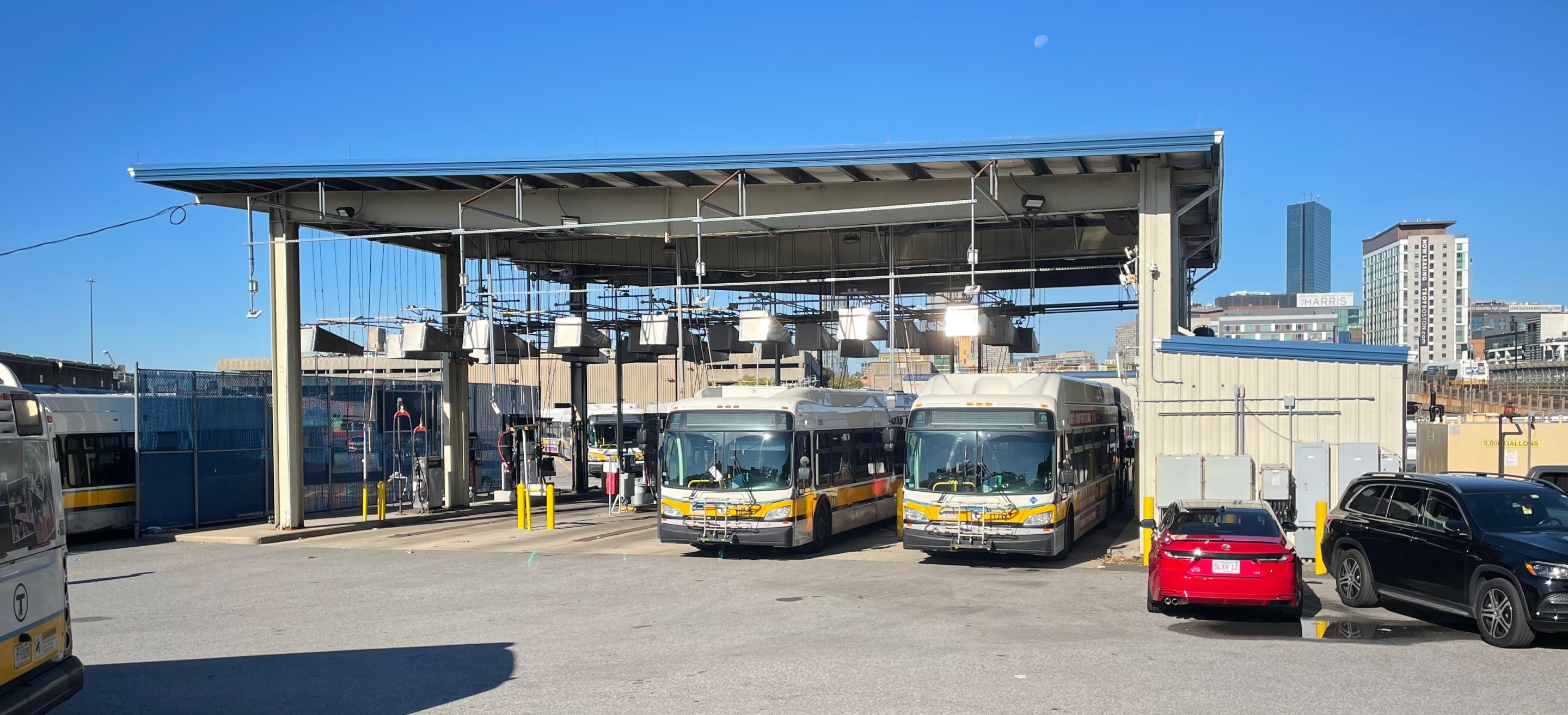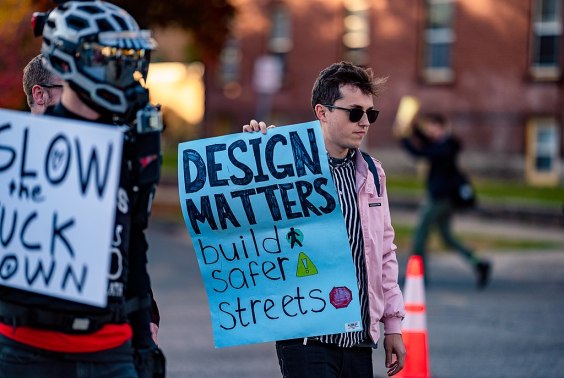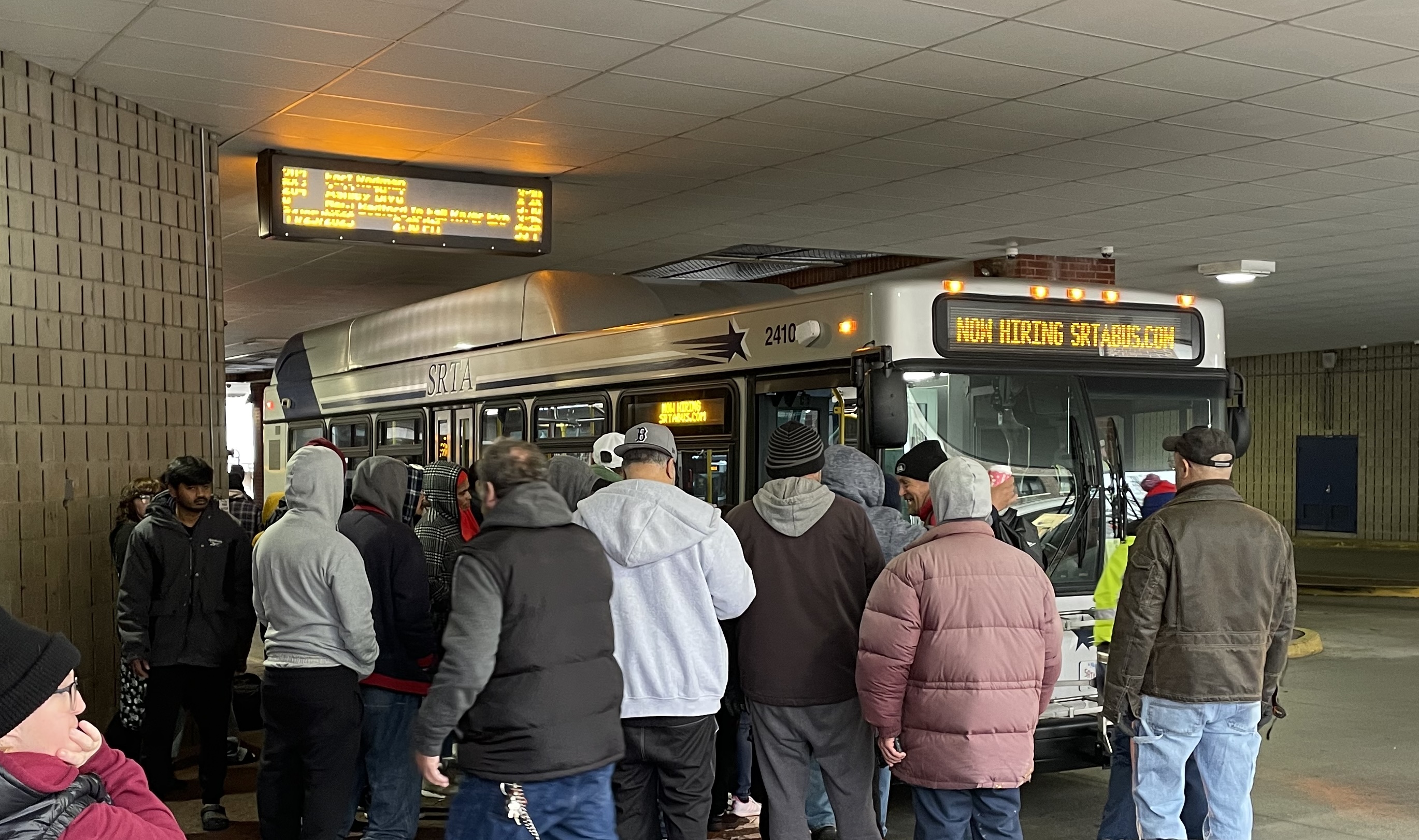Last month, the MBTA announced a new partnership that would let the agency participate in a federal biofuel incentive program – but in a way that won't change its bus fleet or the kinds of fuel it consumes.
The T plans to partner with the STX Group, a commodities trading firm, to participate in the Federal Renewable Fuel Standard (RFSII) program.
That program, established in 2005 during George W. Bush's presidency, requires fuel refiners and importers to produce a certain volume of "renewable" fuels that aren't drilled out of the ground.
The Environmental Protection Agency tracks compliance with tradable credits called “Renewable Identification Numbers,” or RINs, that represent a certain volume of renewable fuel production. Companies that produce biofuel can sell their RINs to fossil fuel companies to help them meet their quotas.
Critically, an RIN can only fulfill those quotas after the credit has been "retired," or used. That's where the MBTA comes in.
The MBTA's methane-fueled buses consume 200 billion BTUs of energy each year, which is roughly 200 million cubic feet of gas (editor's note: The fossil fuel industry markets methane gas as "natural" gas – a term that can mislead the public into believing that the fuel is clean or environmentally benign. StreetsblogMASS refers to the fuel by its primary chemical component and source of energy, which is methane).
Most of that methane is fracked from underground wells. However, a small portion is "biogas" that's captured from decomposing organic matter in landfills, sewage treatment plants, and farms. When that happens, the biogas generates an RIN, and the recovered methane often gets injected into the national network of gas distribution pipelines, where it's mixed with fossil methane and delivered to customers like the T.
An MBTA spokesperson explained that the MBTA will continue to use the same fuel as before, with the same methane-fueled buses. The contract with STX will not change anything about the price the T pays for that fuel, or how it's delivered.
But now, STX will formally match the MBTA’s methane fuel consumption with specific RINs.
"This transaction structure allows the MBTA to participate in the RIN marketplace without any operational changes to its existing bus fleet or exposure to future price volatility in the RIN marketplace," an MBTA spokesperson explained.
The agency expects to receive $800,000 per year from STX over the course of its 5-year contract.
To put that in context, in fiscal year 2025, the T spent approximately $2 million on methane fuels, a spokesperson told StreetsblogMASS.
Electric buses on pause
The new contract is part of a pause for the MBTA's wider decarbonization strategy.
While methane-fueled buses produce fewer tailpipe emissions than a diesel bus, methane still generates carbon dioxide when it's burned, and the methane drilling and pipeline system itself is a major source of planet-heating pollution.
The state's climate laws require the MBTA to procure only zero-emission buses starting in 2031, and to operate only zero-emission buses after December 31, 2040.
The MBTA currently operates about 175 methane-fueled buses that were manufactured in 2016 and 2017.
120 of those buses are based out of the agency's Arborway bus depot in Jamaica Plain, and 55 are based at Cabot Yard in South Boston (pictured at the top of this article), according to the NETransit vehicle roster.
Until recently, the T had been planning to phase out most of those vehicles by the end of the decade, and had been designing a new maintenance garage designed for a new fleet of zero-emission electric buses at its Arborway bus depot.
But the Massachusetts Legislature and Governor Maura Healey haven't put up any of the necessary funding to implement the MBTA's electric bus plans. This spring, the T removed the Arborway garage construction project from its 5-year capital plan, citing a lack of funding.
Meanwhile, the new capital budget added a new $54 million project to overhaul all 175 methane-fueled buses in the MBTA fleet – a project that would keep the vehicles in service well into the new decade.
An MBTA spokesperson told StreetsblogMASS that the overhaul project is currently underway.
The MBTA spokesperson also told StreetsblogMASS that the agency currently does not have plans to reduce its use of methane fuels over the next 5 years.






